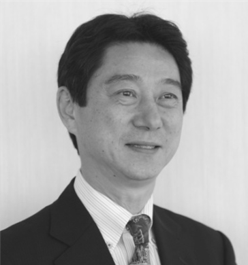The global semiconductor industry is expected to grow by 2.3 times over the next decade, driven by new technologies in AI, next-generation automobiles, and robotics. We have identified two key trends in the semiconductor industry: “advancement of semiconductors" and “restructuring of the supply chain”.
The focus of semiconductor advancement has traditionally been on pursuing "miniaturisation”. However, as the physical limits of miniaturisation have become an issue, the importance of materials and processing technologies, such as innovative materials and three-dimensional structures, has been increasing. In terms of supply chain restructuring, the semiconductor shortage caused by COVID-19 and potential procurement challenges due to geopolitical risks have prompted nations to position semiconductors as a strategic commodity and to develop supply networks domestically and in friendly countries.
The Japanese semiconductor industry is characterised by its dominant share in the supply chain and attractiveness as a production base. Sub-materials and manufacturing equipment, in which Japan has a high market share, are expected to grow alongside technological evolution. A good example of this is the integration of Japanese equipment and materials companies by major semiconductor manufacturers, such as Samsung's establishment of a new research centre for next-generation semiconductor packaging technology in Yokohama. This suggests that Japan's technological capabilities are highly valued. In terms of geopolitics, Japan has a strong advantage as a production base because of its alliance with the U.S. Moreover, Japan has political and economic stability, in addition to many suppliers helping to manufacture chips. In particular, when Taiwanese manufacturers consider regional diversification, Japan has a high affinity due to its proximity and cultural similarities. Several Taiwanese foundries are moving forward with the establishment of new bases in Japan. This indicates that there is an excellent opportunity for Japanese companies as they align with the trends of the semiconductor industry.
In addition to these unique characteristics, an essential element of the Japanese semiconductor industry is government commitment. At SEMICON Japan, Mr. Amari, Chairman of the Promotion of Semiconductor Strategy of the ruling Liberal Democratic Party of Japan, stressed the need for government involvement in the industry. He stated, "In the coming era, the existence of a strong semiconductor industry for a nation can mean the difference between life and death”. Furthermore, moves by the Ministry of Economy, Trade and Industry (METI) over the past few years have been astonishingly bold, and the Japanese government is providing a wide range of national policy support to semiconductor production. On the production side, the construction of TSMC's Kumamoto plant, subsidised by METI, is progressing at an unprecedented pace and is scheduled to open in February. It is in contrast to a U.S. plant project, which will push back the launch of operations to 2025. This recertifies how Japan can improve its reliability as a production base, and TSMC has already decided to build another plant. We believe Rapidus, a company established under a Japanese government directive, is the key to establishing a purely domestic manufacturer of cutting-edge semiconductors. Although many were initially sceptical about the roadmap to manufacture "2-nanometer" semiconductors, it is now becoming more feasible thanks to the collaboration with IBM and imec, the presence of equipment and materials companies, and a new business alliance with a Canadian AI company. In terms of the materials industry, Japan has taken the lead in the reorganisation of the resist industry and the government has offered subsidies to companies such as SUMCO, a major producer of silicon wafers, and IBIDEN, a chip packaging provider. This can be taken as a strong message of commitment by the government to protect and enhance technology.
Although Japan's semiconductor-related national policies are often cited as examples of past failures, the latest initiative combines "industry trends," "Japan's strengths," and "government policy" at a previously unseen level that is leading to high expectations. At the same time, from an investment perspective, we believe that this presents a set of attractive investment opportunities.

